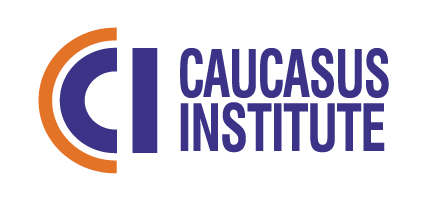The Gagistan Summit
The game
On 2-5 February 2017, the Caucasus Institute in cooperation with the Canada Fund for Local Initiatives held a three-day simulation game on ethnopolitical conflict resolution in Arthurs Resort, Aghveran, Armenia. During three days the 30 participants were negotiating on the resolution of a conflict playing roles of senior officials of fictional countries. At the end of the game, the participants were awarded respective certificates.
The project team designed the simulation game as a summit of heads of state taking place in an imaginary world with fictional names of countries and ethnic groups. The game focused on the dynamics around a secessionist conflict. The overall goal of the game was to find a compromise solution to the conflict and devise a mechanism for its implementation. Game participants played the roles of political decision-makers representing countries and entities with stakes in the conflict. They needed to negotiate the settlement of the conflict while also achieving their countries’ goals.
The setting was a summit of heads of state held with the purpose of settling the conflict; The 11 countries/entities on the game map included
– a developing post-colonial country from which the secession took place,
– the unrecognized secessionist entity,
– four regional developing countries bordering on the conflict region,
– a union of four developed democratic countries adjacent to the conflict region and invested in sustaining peace and stability in it,
– an overseas world power with a stake in the region.
During the Summit and between its sessions, players needed to discuss the principles on which they wished to base the settlement of the conflict, such as territorial integrity, the right to self-determination, economic interests, security, refugees, minority rights, etc.
The game was designed for 30 participants playing in 15 teams.
The Teams
One team played the roles of international journalists covering the conflict. They need to gather information, interview players, and produce three TV news reports every day covering the progress of peace negotiation and current events planned in the game (elections in the secessionist state, military clashes on the borders). The players on this team, who were selected so as not to be journalists in real life, were assisted by a technical expert in producing, editing, and broadcasting TV news. Their role was also to produce breaking news on current events that the organizers decided to insert in the game depending on how its course runs: e.g. a natural disaster, civil unrest, terrorist acts, etc. Other participants learned about these events from TV news.
Three teams represented stakeholders in the secessionist entity who have been invited to the meeting in order to present their positions – its government (president and minister for foreign affairs), opposition (head and secretary of the leading opposition party), and business (two largest business operators). They had varying interests and positions and engaged in negotiations with various stakeholders in order to promote their causes.
One team played for the union of four democratic states. Its goal was to organize and moderate the meetings of the Union and help it achieve consensus concerning its approach to the conflict and other policy issues. The president of the Union represented all the Union’s countries in the Summit of heads of state.
The remaining 10 teams played for countries; each team was composed of a president and a minister for foreign affairs. The presidents sat on official meetings; the ministers negotiated with other players.
Altogether, 7 presidents took part in the official meetings of the Summit (the Union, the overseas world power, the parent state of the separatists, and four neighboring states). Other players followed the course of the meetings, made notes, and drafted strategies.
The success of the game depended on the players’ ability to identify with their countries and stick to the descriptions, i.e. pursue their designated goals and act in accordance with their policies, although there had to be some room for maneuver and change. E.g. a country could try to mitigate its tensions with a neighbor, or try to establish relations where there are none, or negotiate a win-win solution to a problem (such as drug trafficking or refugee flows). However, there was the risk that the overall dynamic of the game would make the players lose sight of their immediate goals and focus on resolving the regional conflict, even to the disadvantage of their own countries, which would be contrary to real-life political logic.
The scenario, therefore, included potential interventions that could be made by organizers depending on the course of the game. The organizers prepared scripts for news that the journalists would be instructed to broadcast as needed. E.g. should the teams display an unrealistic willingness to cooperate, the next TV news would report a terror attack in the respective country (this script was used).
Feedback from participants
“It is impossible not to get emotional during negotiations; one can learn to control emotions but cannot avoid having them.”
“You think of yourself as a patient person but it turns out you become passionate when placed in a position of power and responsibility.”
” In the heat of negotiations, one gets emotional. It is difficult to remain a professional.”
“Communication is one of the most complicated tasks in any job.”
“During the game, I became aware of my boundaries and realized other people have boundaries that must be respected.”
“One gets satisfaction from effective teamwork.”
“It is crucial for your future career to network with colleagues and build a professional community.”
“A university course cannot replace self-learning; it should go on throughout your career.”
“As a journalist, I got a new feeling of how much depends on me doing my job properly.”
“I am studying to be a diplomat, and the game made me realize how much I love my profession.”
“I now have more respect for diplomats because I saw how challenging the job is.”
“I was amazed by my peers’ skills, knowledge, and personalities. It made me want to learn and to develop.”
